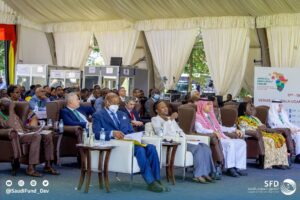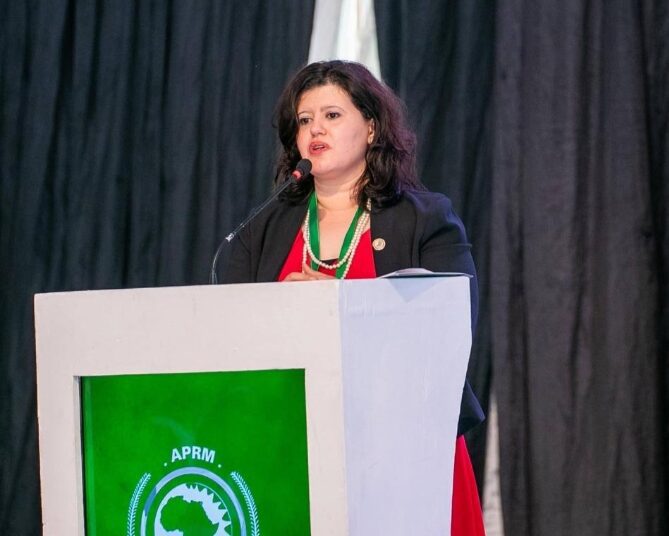The recent geopolitical challenges coupled with the ramifications of Covid-19 have definitely impacted the development strategies in the continent, a matter that requires tangible co-operation to address those challenges. Bearing in mind that Africa is usually the most vulnerable to the severe consequences of global shocks, Uganda has recently hosted the Second Africa High-Level Forum of South-South and Triangular Co-operation (SSTrC) for Sustainable Development under the patronage of President Museveni. The main theme of the conference is building national capacities for South-South and Triangular-Co-operation ecosystems in Africa and forging horizontal partnerships for sustainable and resilient societies.
The Egyptian Mail sat with Sara Hammouda, who is responsible for Sustainable Development Goals (SDGs) and Agenda 2063 at the African Peer Review Mechanism (APRM), to know more about the concept of SSTrC, besides highlighting the outcomes of the forum that witnessed an active participation from the Egyptian government.

According to Hammouda, the SSTrC was launched by the APRM as an initiative seeking to enhance governance and partnerships in a way that helps achieve the SDGs. The concept of SSTrC is based on the Buenos Aires Plan of Action (BAPA) for Promoting and Implementing Technical Co-operation among Developing Countries. This plan was endorsed by the General Assembly in 1978, outlining certain modalities for the implementation of the co-operation.
“At First, Africa did not have a platform for south-south co-operation. So, a meeting of experts was held in 2020 to tackle this file, bearing in mind that the efforts to promote SSTrC in Africa and beyond were affected by the Covid-19 pandemic. Egypt played a vital role in this file and the first edition was held in Cairo in 2021,’’ Hammouda explained
Hammouda stressed the paramount importance of enhancing SSTrC due to the unprecedented disruptions that the world has been witnessing, a matter that undermine the continent’s resilience and the implementation of socio-economic development policies.
The second edition of the forum brought together key stakeholders, including international organisations, academics, civil society and the private sector with the aim of sharing knowledge and expertise. The forum also witnessed the launch of some important initiatives. “It witnessed the launch of two important initiatives.The first one is the official signing of a memorandum of understanding between APRM Continental Secretariat, Prof. Eddy Maloka and Rwanda Co-operation Initiatives (RCI)to support capacity building programmes on SSC.”
As for Second initiaitive, it is the launch of APRM-OECD joint governance programme for Policy coherence of SDGs.
“What is unique about this forum in particular is that some major institutions and banks like the Islamic Development Bank has a south-south co-operation ecosystem.”
According to Hammouda, Egypt’s Ministry of Planning and Economic Development, represented by Dr. Mona Essam, Assistant Minister for Sustainable Development Affairs, participated in the forum. Essam participated in a session that revolves around economic resilience and financing for development, especially in light of regional and global challenges.
Essam explained that the Egyptian state adopted a proactive approach to confront the crisis, based on 3 basic principles: protection, mitigation, and flexibility. This is to ensure the readiness of the health system, in addition to maintaining the sustainability of economic activities and protecting the most vulnerable groups.
The Forum also brought together more high-level speakers and representatives from thirty African countries including APRM National Structures, representatives of development agencies and multilateral institutions including ABC-Brazil, Rwanda Co-operation Initiative (RCI), Tunisian International Co-operation Agency (TICA), Moroccan International Co-operation Agency (MICA), Palestinian International Co-operation Agency (PICA).
“The forum brought African countries together with Asian , Latin American countries as well as development partners. The forum also held an exhibition to highlight local initiatives and solutions delivered by youth and woman from all regions of the African continent. Giving visibility to such initiatives helps promote entrepreneurship and sustainable development,” she noted.






Discussion about this post